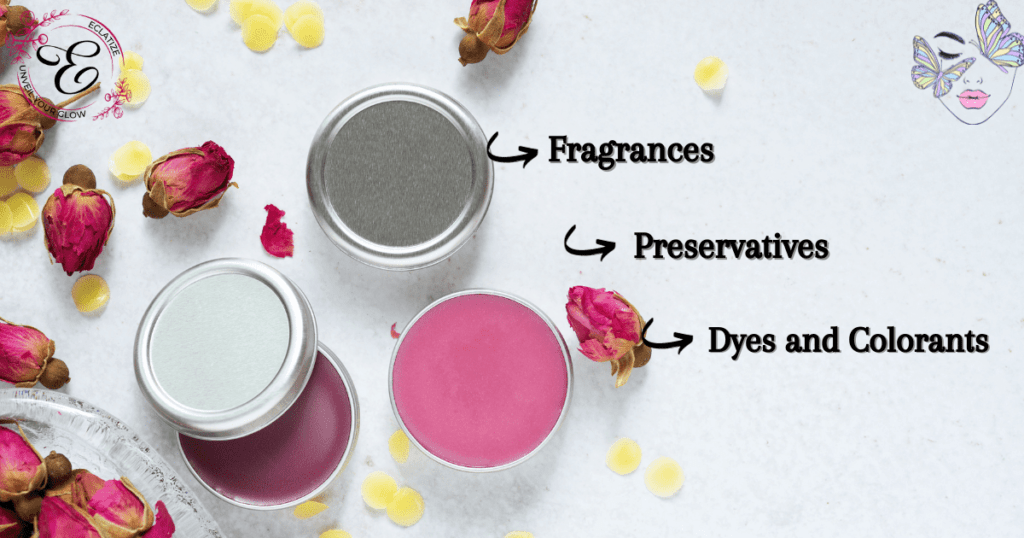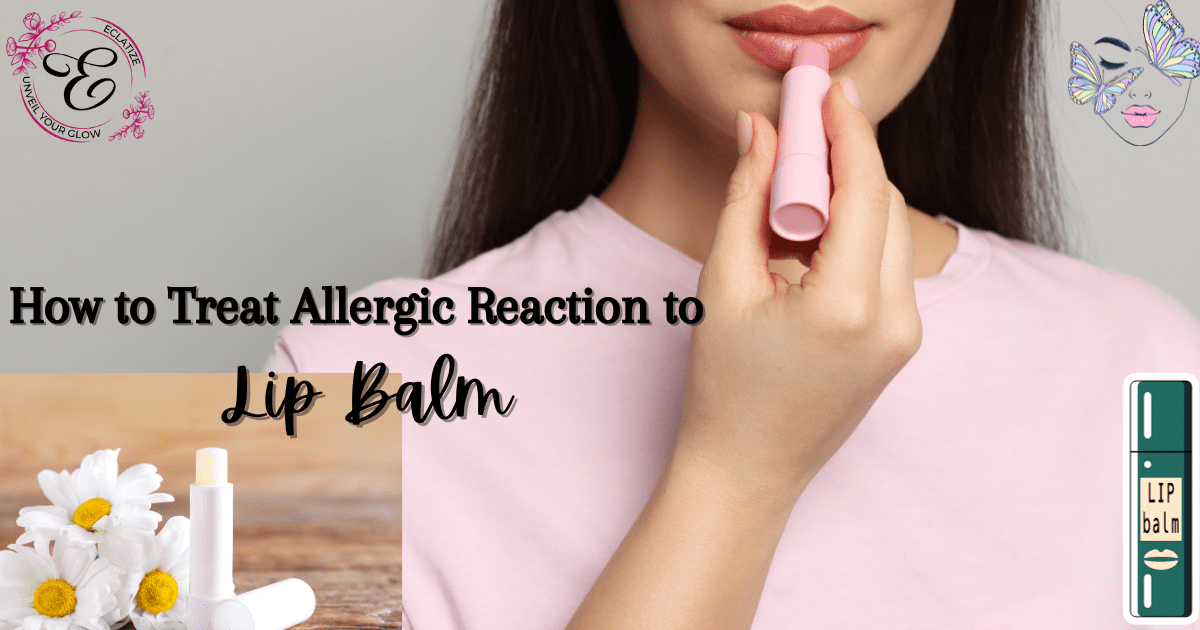Allergic reactions to lip balm can be distressing, causing discomfort and irritation. Understanding the causes, identifying symptoms, and effectively treating these reactions is crucial for maintaining lip health and comfort.
When we think of lip balm, we often associate it with soothing and protecting our lips. However, for some individuals, using lip balm can lead to allergic reactions. These reactions occur due to certain ingredients present in the lip balm formulation, triggering the body’s immune response.
Allergic reactions can manifest in various ways, from mild irritation to more severe symptoms. Recognizing these reactions early on is essential to address them effectively.
Table of Contents
Identifying Allergic Reactions
The symptoms of an allergic reaction to lip balm can include redness, swelling, itching, and even blistering around the lips. It’s important to differentiate between a simple irritation and a true allergic reaction, as the treatment approaches differ.
Some reactions might be immediate, while others could develop gradually over time with repeated exposure to the allergen.
Causes of Allergic Reactions to Lip Balm

Allergic reactions to lip balm can be triggered by various substances present in their formulation. Some common culprits include:
Fragrances
Many lip balms contain fragrances or flavorings that can cause skin irritation or allergic responses in some individuals.
Preservatives
Certain preservatives like parabens or formaldehyde-releasing agents might lead to allergic reactions.
Dyes and Colorants
Ingredients used to color lip balms, especially certain dyes and pigments, can be problematic for sensitive skin.
Specific Ingredients
Some people might have specific sensitivities to particular components like lanolin, beeswax, or certain oils commonly found in lip balms.
Understanding these potential triggers can help individuals identify and avoid products that might cause allergic reactions to lip balm.
Prevention of Allergic Reactions to Lip Balm
To prevent allergic reactions when using lip balm, consider the following measures:
Read Labels Thoroughly
Check product labels for ingredients known to trigger allergies. Avoid lip balms containing substances you’re sensitive to or have reacted to in the past.
Patch Testing
Before applying a new lip balm all over your lips, conduct a patch test. Apply a small amount on a small patch of skin (like the inside of your wrist) to check for any adverse reactions before full use.
Hypoallergenic Options
Look for lip balms labeled as hypoallergenic or formulated for sensitive skin. These formulations often contain fewer potential allergens.
Natural Alternatives
Consider natural or organic lip balms with simple ingredient lists. These products might be gentler on sensitive skin.
Taking these precautions can significantly reduce the risk of experiencing allergic reactions to lip balm.
Treating Allergic Reactions to Lip Balm
If you experience an allergic reaction to lip balm, it’s essential to take immediate steps to alleviate discomfort. Here’s what you can do:
Discontinue Use
Stop using the lip balm immediately once you notice any signs of an allergic reaction.
Cold Compress
Apply a cold compress or a clean, cool cloth to the affected area. This can help reduce swelling and ease irritation.
Natural Remedies
Some natural remedies like aloe vera gel or coconut oil can soothe the irritated skin. Administer a modest quantity of the solution delicately onto the impacted region.
Avoid Scratching or Peeling
Refrain from scratching or peeling the affected skin, as it can worsen the irritation and potentially lead to infection.
By taking these steps, you can manage the immediate discomfort caused by an allergic reaction to lip balm.
Seeking Medical Help
In severe cases or when reactions don’t subside, consulting a healthcare professional is necessary. They can perform allergy testing to identify specific triggers and recommend suitable treatment options.
Alternative Lip Balm Options
For those prone to allergies, exploring natural or hypoallergenic lip balm alternatives can be beneficial. Homemade options using simple, safe ingredients or products labeled specifically for sensitive skin might be better tolerated.
Caring for Lips Prone to Allergic Reactions
If you have a tendency to experience allergic reactions to lip balm, taking extra care of your lips is crucial. Here are some tips to help maintain lip health:
Hydration is Key
Keep your lips hydrated by drinking an adequate amount of water throughout the day. Lips kept well-moisturized are less susceptible to experiencing irritation.
Gentle Cleansing
When cleansing your face, use a mild, unscented cleanser and gently wash around the lip area. Avoid harsh scrubs or abrasive products.
Avoid Overlicking
Excessive licking of the lips can exacerbate dryness and irritation. Try to refrain from this habit to prevent further discomfort.
Choose Lip Products Wisely
Opt for lip balms or lip care products specifically designed for sensitive skin. Look for labels that mention hypoallergenic or natural ingredients.
Regular Moisturizing
Apply a gentle, fragrance-free moisturizer to your lips regularly, especially before bedtime, to keep them hydrated and protected.
Sun Protection
Use a lip balm with SPF protection when exposed to the sun. This shields your lips from harmful UV rays and can prevent further irritation.
By following these practices, you can help minimize the risk of allergic reactions and keep your lips healthy and comfortable.
Conclusion
While lip balm is meant to nurture and protect our lips, allergic reactions can interfere with this purpose. Being mindful of ingredients, recognizing symptoms, and adopting suitable prevention and treatment measures are crucial for managing allergic reactions to lip balm.
FAQs
Can I develop an allergy to lip balm even if I’ve used it for years?
Yes, allergies can develop over time due to changes in formulation or repeated exposure to certain ingredients.
What should I do if my lips swell after using a lip balm?
Discontinue use immediately and apply a cold compress. Should the swelling endure or exacerbate, it’s advisable to promptly seek professional medical care.
Are natural lip balms always safe for sensitive skin?
While natural options can be gentler, individual reactions vary. Patch testing is recommended.
Can I outgrow an allergy to lip balm?
It’s possible, but allergies can persist. For accurate assessment and expert advice, consider consulting with an allergist to address your concerns effectively.
Should I avoid lip balm altogether if I’ve had an allergic reaction?
Not necessarily. Identify the specific allergen and choose products free from that ingredient.


2 thoughts on “How to Treat Allergic Reaction to Lip Balm”